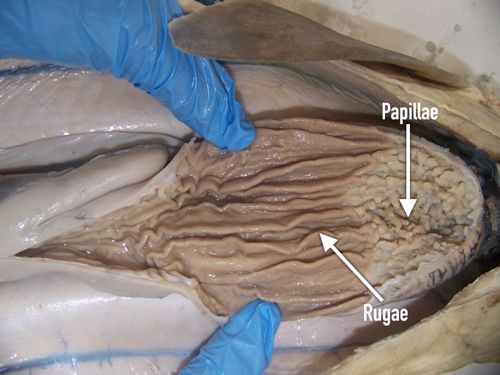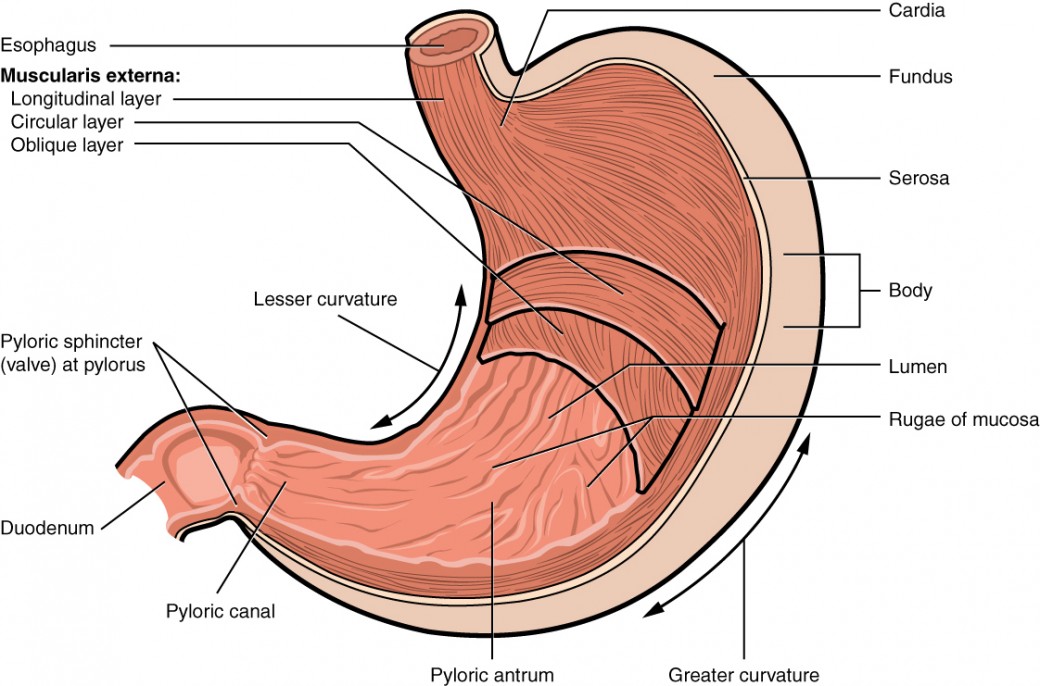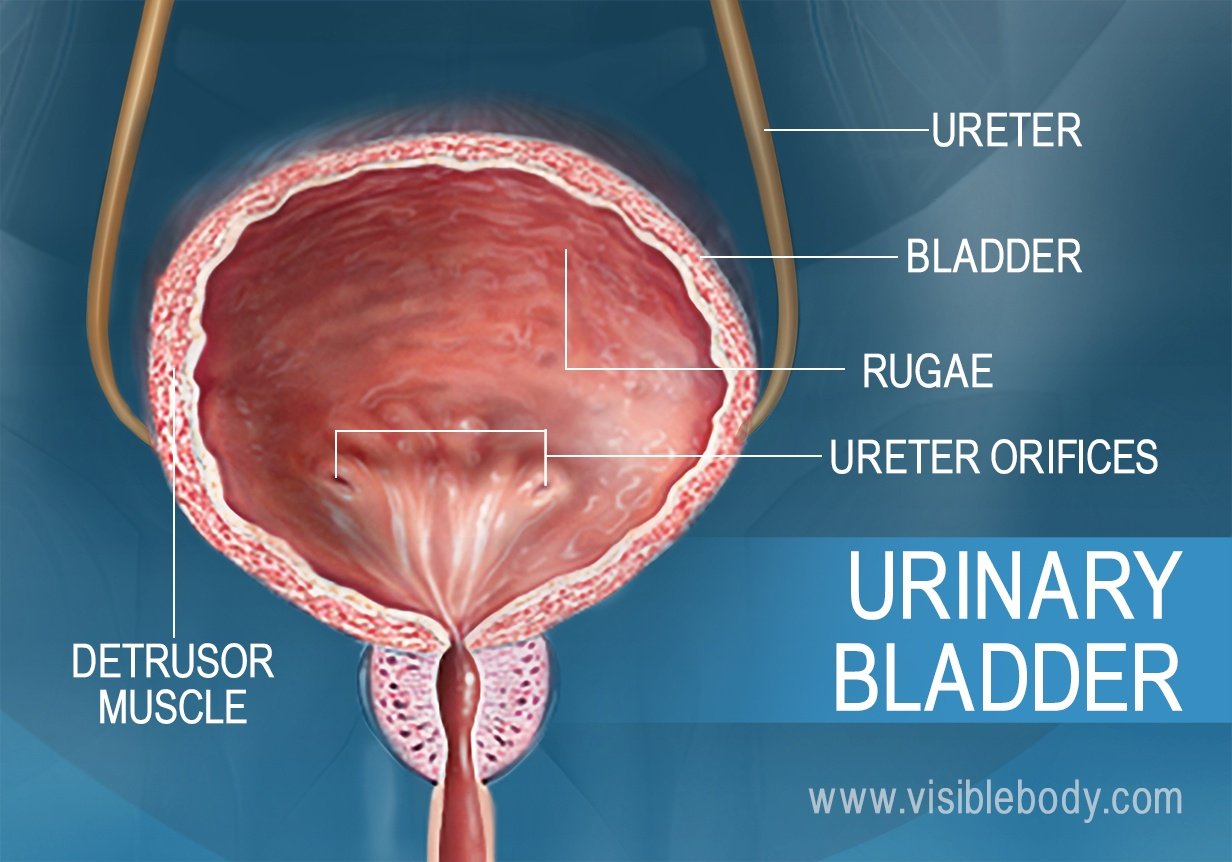Rugae allow the stomach to expand to accommodate large meals.
What is rugae and under which conditions is the rugae present in the stomach.
The gastric folds or gastric rugae are coiled sections of tissue that exist in the mucosal and submucosal layers of the stomach.
Rugae can be seen within stomach.
The gastric folds or gastric rugae are coiled sections of tissue that exist in the mucosal and submucosal layers of the stomach.
They provide elasticity by allowing the stomach to expand when a bolus enters it.
When the stomach is full the rugae unfold which allows the stomach to expand.
They also grip the food inside the stomach to help physically break.
One of the most famous sets of rugae is the gastric rugae found on the inside of the stomach.
The stomach is an organ which must be able to expand and contract sometimes relatively rapidly to accommodate people at mealtimes and as they digest.
These folds stretch outward through the action of mechanoreceptors which respond to the increase in pressure.
They provide elasticity by allowing the stomach to expand when a bolus enters it.
Ridges of muscle tissue called rugae line the stomach.
No tissue is elastic enough on its own to accommodate the needs of the stomach.
These folds stretch outward through the action of mechanoreceptors which respond to the increase in pressure.
Most commonly rugae refers to the gastric rugae of the internal surface of the stomach.
The stomach is a structure that can expand and relax.
In anatomy rugae are a series of ridges produced by folding of the wall of an organ.
Rugae are the specific undulations in the walls of the organs which are observed when the organs are deflated or in a relaxed state containing.
The stomach secretes acid and enzymes that digest food.
The stomach muscles contract periodically churning food to enhance digestion.
Webmd defines gastric rugae as ridges of muscle tissue lining the stomach.
Gastric rugae are folded in the stomach tissue when the stomach is not full.
When the stomach is empty the inside has small folds called rugae.
The appearance and presence of vaginal rugae change over the life span of females and are associated with hormonal cycles estrogens childbirth puberty and menopause during gynecological examination of prepubescent girls rugae can be visualized.
Gastric rugae are essential to the body s digestive system as stated by wikipedia.
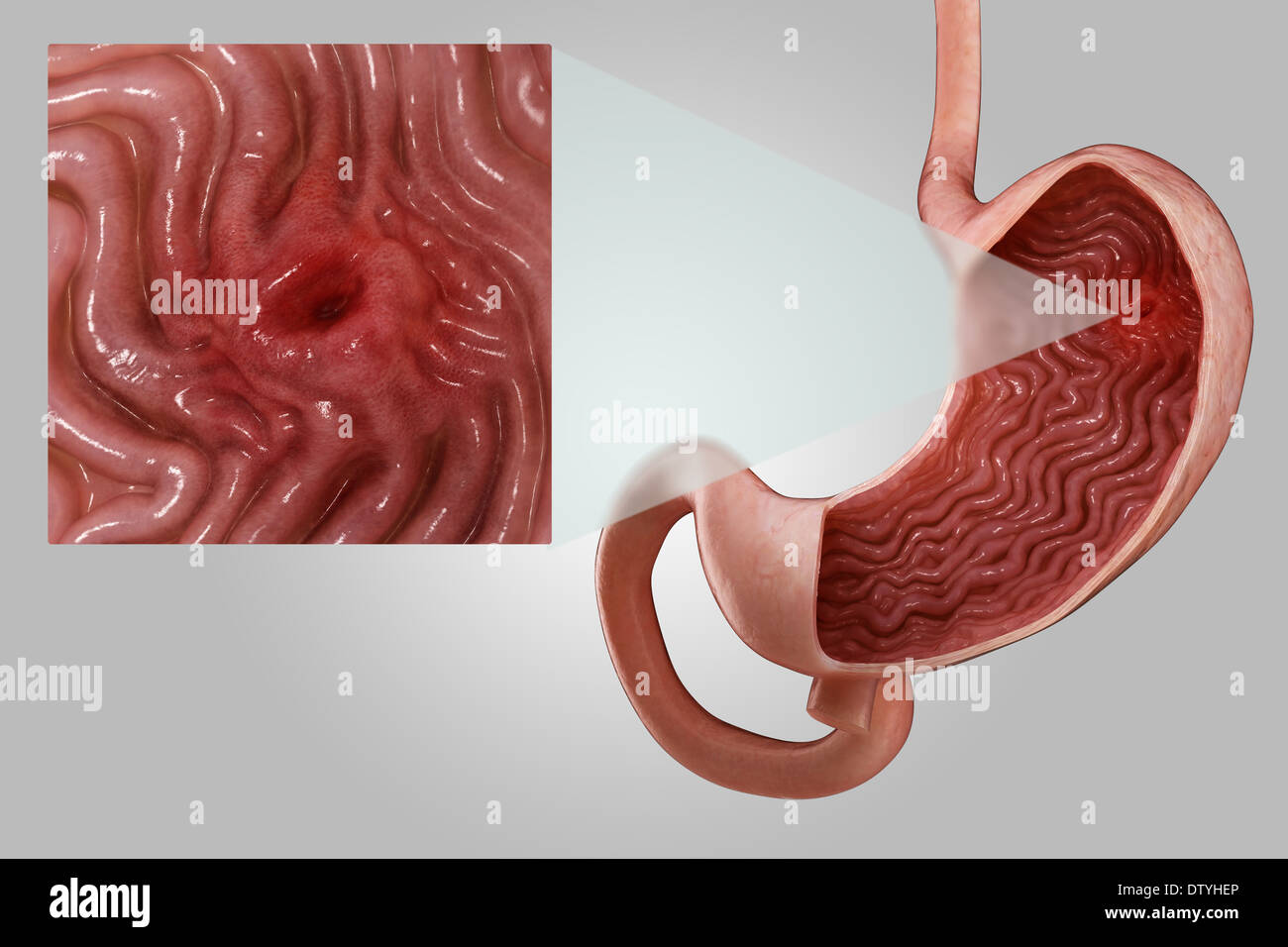







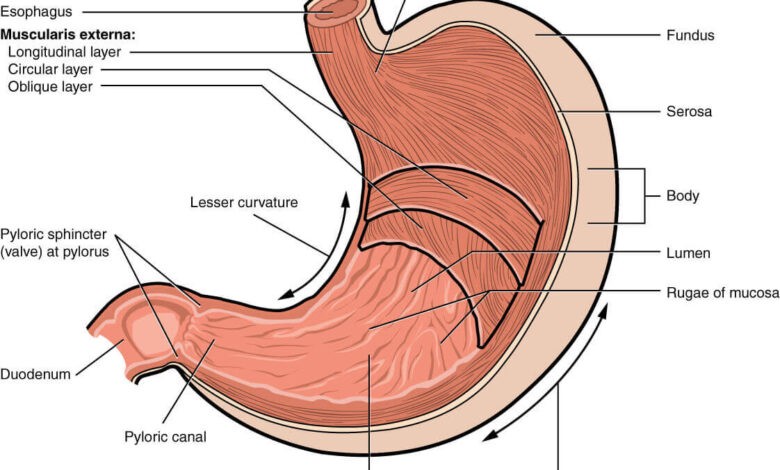
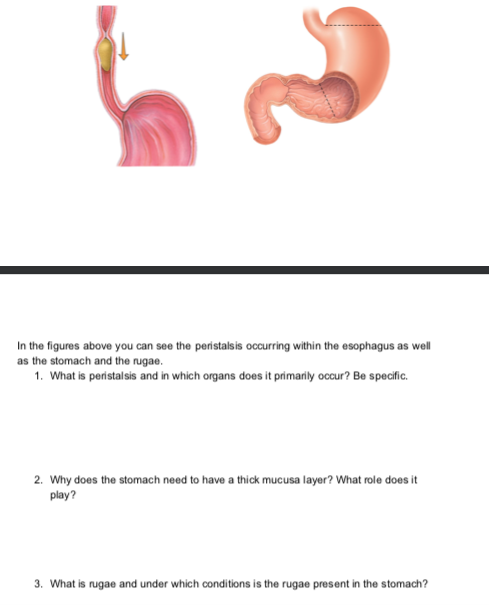




:background_color(FFFFFF):format(jpeg)/images/article/en/stomach-histology/IiEpFsCtd3a9uRmHrNcPiA_thumbnail.png)


